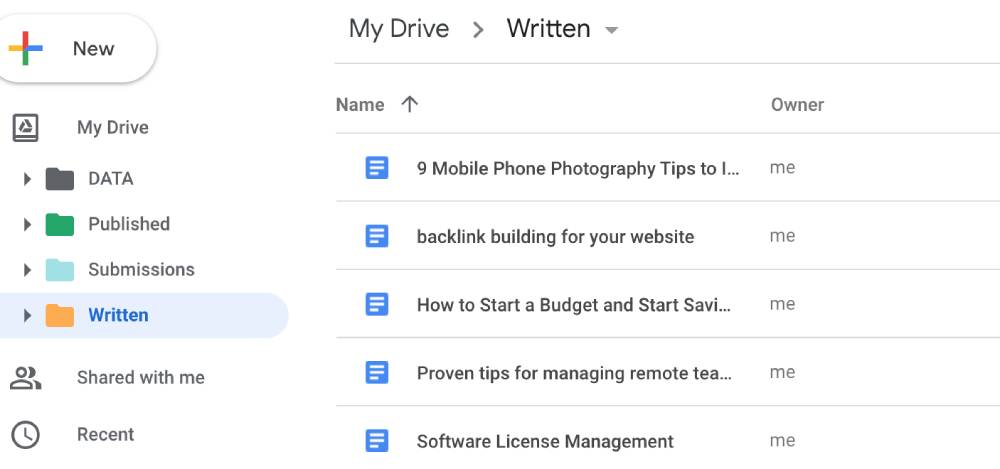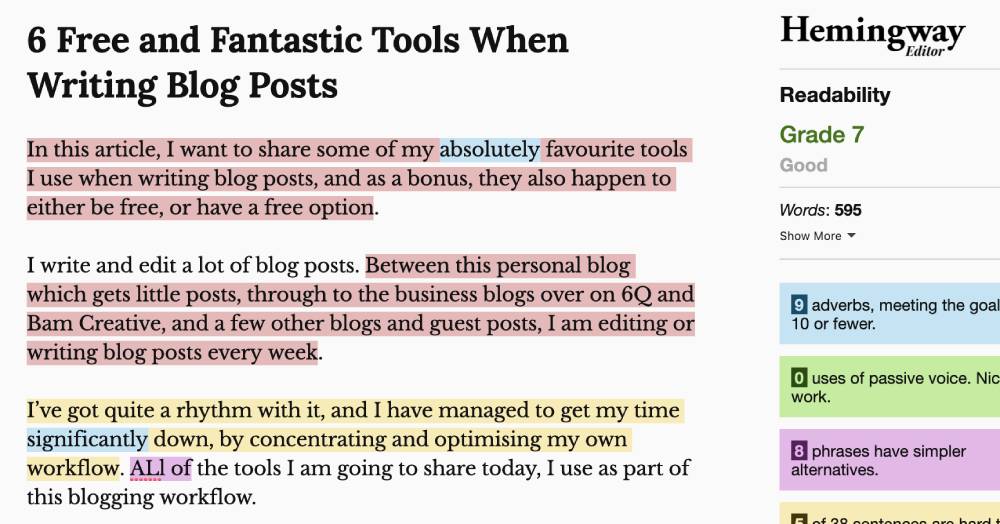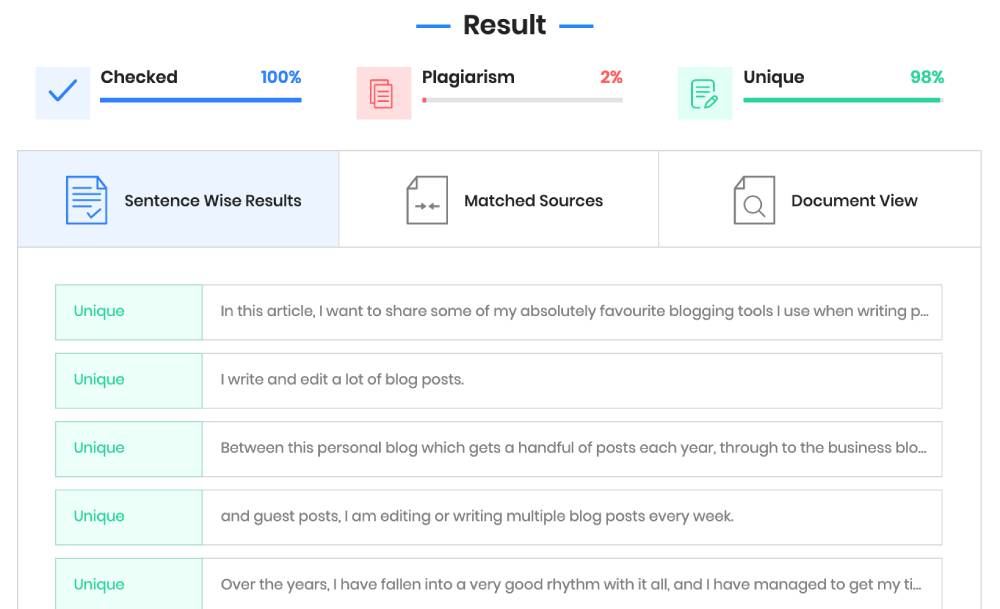Last updated August 2022
In this article, I want to share some of my absolutely favourite blogging tools I use when writing posts, and as a bonus, they also happen to either be free, or have a free option.
I write and edit a lot of blog posts. Between this personal blog which gets a handful of posts each year, through to the business blogs over on 6Q and Bam Creative, and a number of other blogs and guest posts, I am editing or writing multiple blog posts every week.
Over the years, I have fallen into a very good rhythm with it all, and I have managed to get my time significantly down, by concentrating and optimising my own blog writing and editing workflow.
I thought it may be of use to others if I shared some of my absolute favourite blogging tools that I tend to use at least a few times every week, as a way to help you improve your own writing and editing workflow.
So without any further introduction, let’s get into it.
Capitalize My Title
https://capitalizemytitle.com/
I find that I prefer blog post titles in Title Case, so that’s where I lean on Capitalize My Title for help. I am a fan of the APA style, so I cut and paste a title into the form field, and presto, I have the correctly capitalised title in mere milliseconds.
I find I use it not just as a blogging tool, but more for editing as well. It helps when I am editing other people’s work, as many people have different ways of capitalising titles. I also often find small discrepancies within one article, and I strongly believe that keeping a uniform rule with capitalisation of headings and sub–headings helps the reader.
FixSpell.com
This is a new entry to the list here, as it is a side project of mine. I found that I was spending an extraordinary amount of time changing US spellings to UK/International English when I was editing other people’s writing, so I build a single page app that changes US English to International English and back again.
The issue with other text processors, is they want you to approve each word change; if you have 40 words in one blog post to swap, it becomes very tedious. This does it all in under a second. I’d love your thoughts on it, and hope you find it helpful – I sure do!
Google Docs
I doubt that this tool needs any form of introduction. Once upon a time, I used to always write directly into WordPress, however since I started writing using Google Docs, I much prefer the interface and features offered there.
For starters, I keep a copy of all my submitted articles in my Google Drive, so if a site ever goes offline in the future, or for some reason, I lose a copy, I always have the original. I also like the spelling and grammar checks and the word count tool that I have set to display, whilst I am writing.
As you can see from the image below, in Google Drive I use three main folders; the first being Written, which is where unpublished and un-submitted work goes, then I have Submissions, which is where articles I have submitted but yet to be published reside, and then Published. I move the article file from Written > Submissions > Published as the publishing progresses.

Google Drive
Hemingway
Whilst the spelling and grammar checks on Google Docs is pretty good, sometimes you need that extra check, just for things like passive and active voice, hard to read sentences and the like.

Hemingway editor
I do often find that Hemingway can be a little over the top for my liking, so I tend not to try and clear every single warning, however it sure helps improve my writing. I have the paid desktop version on my Mac, however the browser based one has nearly all the same features, and is free for anyone to use.
Some form of advanced grammar and spell check is an absolute must-have in your blogging tools in my opinion.
Image Compressor
I find that Photopea exports images with great file sizes anyway, however if I am downloading images supplied from elsewhere, and all I want to do is optimise their file size, then this is my chosen image tool.
I’ve mentioned it in previous blog posts as well, I am such a big fan. It’s incredibly easy to use and it’s great for the budget, being 100% free. What isn’t to like with that?
Photopea
I’ve been a huge fan of Adobe Photoshop since I was first introduced to it, back around 1995. However I often find myself on my personal laptop, or between computers and devices, that don’t have a license for it.
So the next best thing for me is Photopea. I’ve now got in such a habit, that I often use Photopea even if I am on a Photoshop licensed device.
If you want to easily manipulate images under let’s say 10mb in the browser, then Photopea is perfect. If you are on a slow connection or have a huge file, you may think otherwise, however for blogging, I am typically working with images under 200Kb, so a browser solution is perfect.
Search Engine Reports Plagiarism Checker
https://searchenginereports.net/plagiarism-checker
Obviously this blogging tool is not so much for my own posts, however whenever I accept someone else’s work, I find it important to run it through some plagiarism software. Sadly, I have learnt over time not to trust those who submit guest articles, unless I know them very well.
I have used both commercial and free plagiarism checking tools over time, however this one seems to uncover more than the paid tool I was previously using. There’s a 2,000 word limit, which is not much of an issue for most articles, however for lengthy one, I just break the text into two checks.
Not only is plagiarism just not ethically cool at all, it is very dangerous for publishers. Google hates content theft, and will punish websites that are caught copying wholesale chunks of text, without good reason. It’s not worth the risk.

Plagiarism checker
Writer.com Plagiarism Checker
https://writer.com/plagiarism-checker/
Another tool I find useful is the plagiarism checker over on Writer.com. There’s no character limit, and it is pretty fast in finding duplicates.
Yoast SEO
I won’t write much about Yoast here, because my last post about optimising blog posts, goes into more detail about it. If you are using a WordPress for your blog, I highly recommend using the Yoast plugin.
In Summary
Everyone has their own workflow, and your blogging tools will obviously vary from mine. Let me know if you’ve now discovered a gem from the list above, or if you have a tool you’d suggest should join this list; I would love to know about it.

 Entrepreneur,
Entrepreneur, 